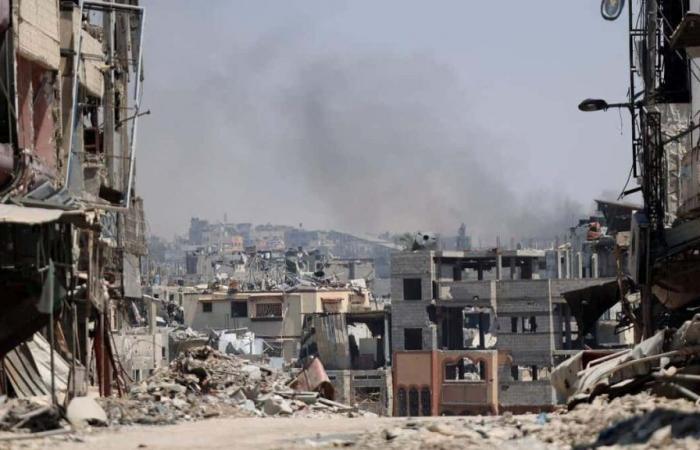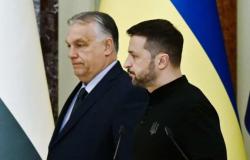The Israeli army concentrated its operations against the Palestinian Islamist movement Hamas on Sunday in the cities of Gaza and Rafah, with Prime Minister Benjamin Netanyahu calling it a “difficult fight”.
Nearly nine months after the start of the war, triggered by an unprecedented attack by Hamas against Israel on October 7, Mr. Netanyahu says he wants to continue it until the elimination of the Palestinian movement in Gaza and the release of all the hostages kidnapped during the attack.
This war, which has caused a human catastrophe in the besieged and devastated Palestinian territory, also raises fears of a conflict between Israel and Lebanese Hezbollah after an increase in attacks on both sides of the Israeli-Lebanese border.
Over the past 24 hours, 43 Palestinians have been killed in the Israeli offensive against the Gaza Strip, the Health Ministry of the Hamas government which took power in the Palestinian territory in 2007 said on Sunday.
According to witnesses, numerous Israeli airstrikes targeted Gaza City in the north, as well as Rafah and Khan Younis in the south.
While the army announced in January that it had dismantled the Hamas command structure in the north of the territory, its soldiers launched an operation on Thursday in Shujaiya, a district of Gaza City, under air cover and artillery . The bombings and fighting continued on Sunday for a 4e consecutive day.
“People are trapped”
“People are trapped in their homes in Shujaiya. It is difficult to leave the neighborhood under the bombings,” testified Siham Al-Shawa, 50 years old: “Our life has become hell, we do not know where to go to protect ourselves, they are bombing everywhere.”
The army announced that it had “eliminated several terrorists, discovered weapons” and “struck dozens of terrorist infrastructures” in Shujaiya.
Between 60,000 and 80,000 people, according to the UN, fled the east and northeast of Gaza City after the evacuation order given by the Israeli army on Thursday.
In the south of Gaza, Israeli soldiers launched a ground offensive on May 7 in the town of Rafah, then presented by Israel as the last major stronghold of Hamas.
Six people were killed in a strike that hit a house in Rafah, while artillery fire rocked parts of the town, according to witnesses and medics.
“Underground Combat”
“Our forces are active in Rafah, Shujaiya, everywhere in the Gaza Strip,” Benjamin Netanyahu declared on Sunday at the weekly government meeting, a week after affirming that “the intense phase” of the war was coming to an end.
“Dozens of terrorists are eliminated every day. It is a difficult fight that we are waging on the ground, sometimes hand-to-hand, and also underground,” he said, referring to the tunnels dug underground by Hamas during its years in power.
The attack by Hamas on October 7 in southern Israel resulted in the deaths of 1,195 people, mostly civilians, according to an AFP count based on official Israeli data. Of the 251 people kidnapped during the attack, 116 are still being held hostage in Gaza, of whom 42 are dead, according to the army.
In retaliation, Israel has vowed to destroy Hamas, which it considers a terrorist organization, along with the United States and the European Union.
Its large-scale offensive on the small Palestinian territory has so far left 37,877 dead, mostly civilians, according to data from the Health Ministry of the Hamas-led Gaza government.
Attacks by Israel and Hezbollah
The war has caused massive population displacements in the territory where some 2.4 million people are under siege in conditions described as “disastrous” by the UN.
Humanitarian aid is arriving in dribs and drabs and there is a shortage of water and food. Thousands of children are suffering from malnutrition, according to the World Health Organization (WHO), which in mid-June reported “32 deaths attributed to malnutrition, including 28 among children under five.”
Fears that the conflict will spread to Lebanon have recently grown.
On June 19, Hassan Nasrallah, the leader of Hezbollah, a powerful movement allied with Hamas and supported by Iran, warned that “no place” in Israel would be spared in the event of war, after the army claimed having “validated” “operational plans” for an offensive in Lebanon.
On Sunday, Hezbollah claimed new attacks against Israeli military positions on the border, while Lebanese media reported Israeli bombings on southern Lebanon.






